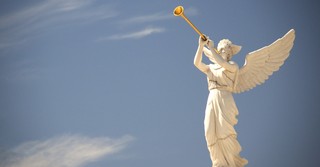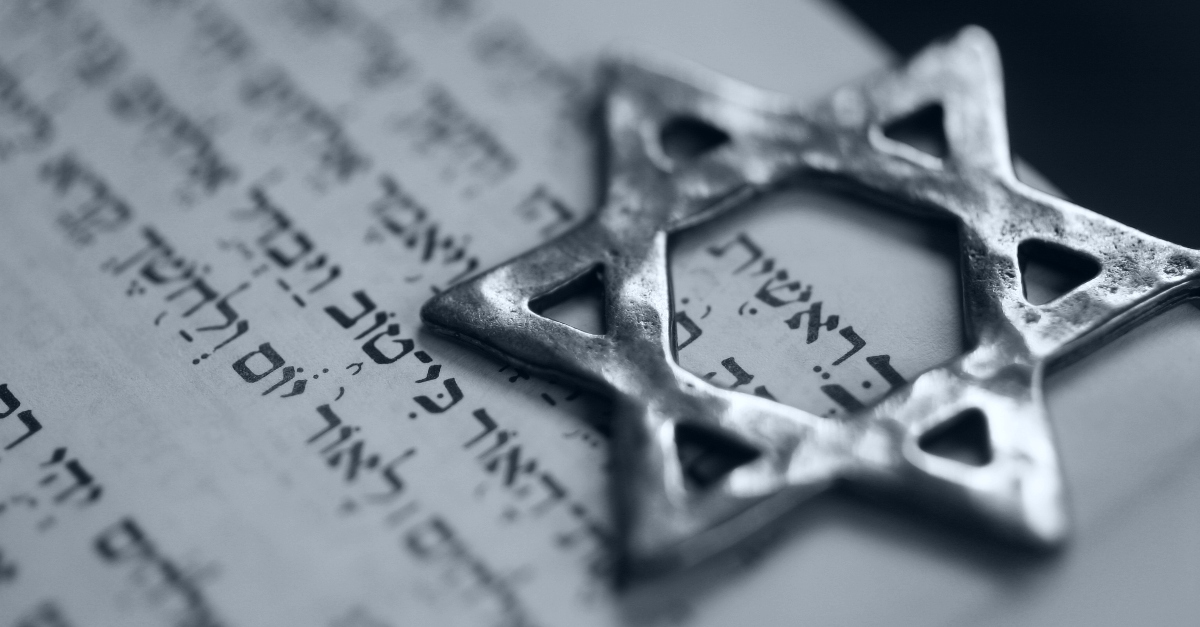What Is the Feast of Trumpets?
Share

Throughout the Old Testament there are many feasts mentioned. One such feast is the Feast of Trumpets. This was a celebration ordained by God for the Israelites. It was a time when they were to remember what God had done for them. The Feast of Trumpets was a beautiful day that is celebrated even today. Let’s unpack this special feast and understand what it is, and how Christians today should respond to the Feast of Trumpets.
What Is the Feast of Trumpets?
The Feast of Trumpets is first spoken of in Leviticus 23:23-25. At this time, the Israelites had been brought out of Egypt and Moses received the covenant from God. The Israelites had built the Tabernacle, and God gave instructions to be told to the Israelites by Moses.
We find the Feast of Trumpets listed as one of the holy days for the Israelites to keep. God tells Moses the exact time the Israelites are to celebrate, and how the people should celebrate. During the feast, the people would bring various offerings to the Lord. In Numbers 29:1-6, we read about these offerings. Here we can find specific instructions about what to offer and how to offer it.
This feast was a call to stop work and remember the Lord. The people were to hold the feast on the first day of the seventh month and you were to present a fire offering to the Lord. Throughout the day, the Israelites could hear the sound of a trumpet or shofar, hence the name Feast of Trumpets.
No daily work was completed on this day. It was a sacred time. The Feast of Trumpets was an outward expression of the feeling of anticipation the Israelites had. The Lord had shown himself to Moses at Mount Sinai, and the people anticipated the Lord showing himself again.
This feast is also a beautiful picture of the second coming of Christ, and Jews around the world continue to celebrate the Feast of Trumpets today.
Is This the Same as Rosh Hashana?
The Feast of Trumpets is better known today as Rosh Hashana. Jews celebrate it in the same way and at the same time. Rosh Hashana literally means “head of the year.” Jews believe that on this day God created the heavens and the earth. They also believe other biblical events happened on this day. For example, they believe that Adam was created on this day and that Samuel was born on this day. Jews also believe the first temple was dedicated on this day.
We do not find the words Rosh Hashana in the Torah, the Jewish holy book. The phrase makes its first appearance in the Mishna, a Jewish code of law around 200 AD.

Photo credit: ©Getty Images/yoglimogli
When Is the Feast of Trumpets?
Rosh Hashana is a Jewish holiday celebrated on the first day of the Jewish new year. In 2020, Jews celebrated Rosh Hashana on September 18th. Each year this date changes with the changes of the western calendar. It usually falls in September or October.
Rosh Hashana begins the 10 days between the Jewish new year and Yom Kippur. Jews consider this day the beginning of the high holy days for Jews. This was and continues to be a time for prayer and repentance. It is the time that God will decide who lives or dies that year. Rosh Hashana is when Jews take a deep look into their lives and evaluate their relationship with God.
What Is the Symbolism of Trumpets?
Jews continue to use trumpets in the celebration of Rosh Hashana. Jews of the Bible and today use an instrument called a shofar – a trumpet made from a ram’s horn. This was the ancient version of the trumpet. During the Feast of Trumpets, they blow the shofar in certain sound patterns that represent different reasons for the celebration.
Trumpets are mentioned throughout Scripture; they are a call to action. Blowing the trumpet could mean a call to war, a call to assemble, or call to march.
In the Old and New Testaments, we can find many references to the sound of a trumpet. In Joshua 6:4-20, the walls of Jericho collapse after seven days of trumpet blowing. Zechariah 9:14-16 references the coming of the Lord with a trumpet sound. In Revelation, we read about the seven trumpets that will sound as the end times approach.
What Does This Mean for the End Times?
In almost all religions, we debate the end times. We live in expectation of an end to this life and we want to know what is going to happen. Regarding trumpet sounds, Scripture is clear. We will hear trumpets in the events of the end times.
In Revelation, beginning in chapter eight, we read about trumpets in the hands of angels. There are seven angels and there will be seven trumpets. As each angel sounds a trumpet, an event will occur. These events include portions of the Earth burning, stars falling from the sky, water becoming bitter, and locusts harming people.
When the seventh trumpet has sounded, the kingdom of the world will have become the Kingdom of God. Rosh Hashana, or the Feast of Trumpets, is an Old Testament picture of what the rapture will be like.
In the New Testament, Paul refers to the trumpet sound of the rapture in 1 Corinthians 15:51-52. The apostle Paul is telling us that as the last trumpet sounds, the dead will rise and we will be changed. There is no mention of a definitive date, though. We must understand that trumpets will signal the people of God to gather and be ready to meet our Savior.
Just as trumpets were sounded to call God’s people together, the trumpets sounded at the end times are a call for God’s people to remember. They are calling for all people to repent of their sins. They are the sound of anticipation for the return of our Lord.

Photo credit: ©Getty Images/Rawpixel
Should Christians Celebrate the Feast of Trumpets?
Just as Christians celebrate Christmas and Easter, I think we should consider celebrating the Feast of Trumpets. We should take any chance to celebrate the greatness of our God.
Christians can learn much from the Jewish traditions and festivals laid out in the Bible. Often, we think the Old Testament has little significance in the way we express our love for God. In the case of the Feast of Trumpets, there are beautiful symbols that Christians should embrace.
The celebration of the Feast of Trumpets represents several key thoughts that Christians should hold sacred. First, we should see the feast as a recognition that God is Lord over all the Earth. This holy day is a sanctified reminder of that fact.
Second, preparing for the Feast of Trumpets reminds us to be ready for the Lord’s return. The sound of the shofar is a call to prepare.
Third, Christians should recognize the prophetic significance of this day. It is a time when the ways of the world are set aside. Our focus shifts and is solely on the Lord.
Lastly, Christians can celebrate the Feast of Trumpets with a joyful heart, knowing our God is a God of new beginnings. Even though this is the Jewish new year, Christians can celebrate that our God can and does make us clean and new. He is the God that will come back for His people and create a new heaven and earth. It is a time where we can express our gratefulness for the God that sent His one and only son to save us from our sins.
Christians are called to be prepared for the coming of Christ throughout the entirety of the Bible. Rosh Hashana or the Feast of Trumpets is a celebration of that call.
Today, Christians should consider this celebration in their own walk with the Lord. It may not look the same as the Jewish celebration, but it can be a special time for you and your family to stop everything and focus on God. We can use this celebration along with each day to be ready for the return of Christ.
Sources
History.com, “Rosh Hashanah”
Promises to Israel, “Rosh Hashanah – The Feast of Trumpets”
Photo credit: ©Getty Images/mstroz
